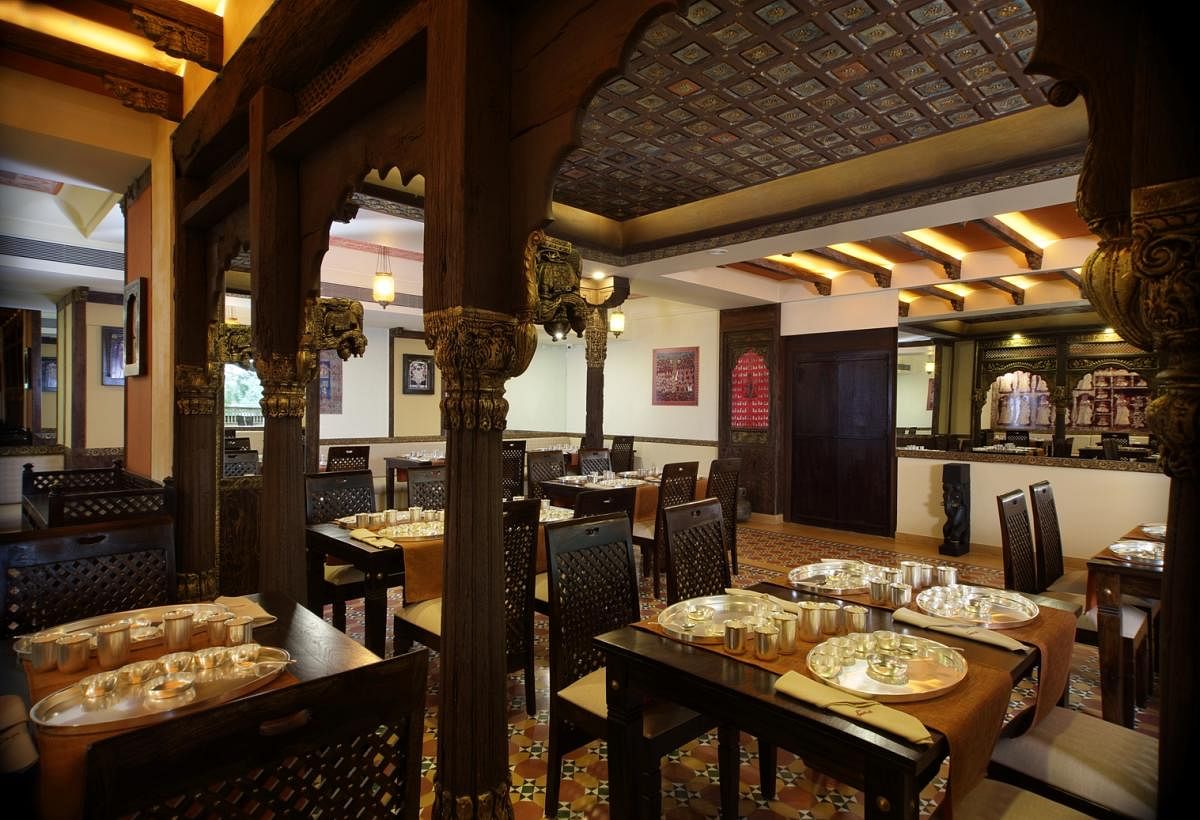

The pandemic is likely to result in the closure of Bengaluru restaurants that had been struggling for viability even before the lockdown.
While some owners are exiting the business, others are prospecting for less expensive rentals. With migrants going back to their home states, finding workers is another big worry. In the past few weeks, a group on Facebook has seen owners offering to sell their restaurants to anyone who might want to have a go at turning the business around.
Rent too high
Chef James Ford launched Britalian Kitchen, which specialises in European cuisine, in Indiranagar six months ago. He’s caught in a pickle now. “I’m from the UK and I came to work in India a year ago. It took me three to four months to find a place and set it up. Six months into the business and we are going through a lockdown which has been bad for the business,” he told Metrolife.
He finds the rent too high and is looking for a better location. “While we are taking in online orders at the moment, we will be clearing out the space by June. I may just go back to the UK till things clear back up and we’ll see how we can bring business back after that,” he says.
Soured dreams
Arun Adiga, managing partner at Vidyarthi Bhavan, says restaurants face a huge shortage of staff as many were migrants from the north who have already left or will leave soon. He fears 30 to 40 restaurants will close in the coming weeks. The commissions paid to the food delivery aggregators such as Swiggy and Zomato is also a reason for many to shut down.
Arun explains, “The only way you can be visible right now is through online aggregators but they take a lot from you too, almost to a point that you don’t have much left.”
Relocation plans
A fast-food joint in Sarjapur is up for sale. The owner, who did not wish to be named, says, “The location we are in is not great and we want to rebuild our space again in a different location.”
The building owner has been kind enough to waive his rent during the lockdown, but he feels his restaurant is not in the right neighbourhood. “Even after we move to a new location, there’s always the fear that I might have to shut shop six months down the line,” he adds.
Now winding up
Bengaluru has seen many from outside the culinary business start restaurants. A healthy food subscription-based restaurant in Koramangala was started by such an enthusiast. Coming from a commerce background, he ran the business for a year but is now dissolving it.
“We tried everything from working with corporate clients to giving discounts but it wasn’t feasible. The two-month lockdown has taken a huge toll on the business and we can’t handle it anymore,” he says.
Trying to sell the business is difficult, he says. “There aren’t many buyers right now. Everyone is sceptical and probably in debt too. I will have to eventually go back to my day job and honestly, I will be very hesitant to come back to the industry,” he told Metrolife.
Secret deals
Restaurateur Danish (name changed) sees big players finding new partners and bringing in fresh investments.
He feels that business will still be low for everyone even after the lockdown. “Yes, these bigger names will have their old customers but it won’t go on for too long. People will also spend less because they have a financial crunch,” he says.
Time to resume dine-in
It makes no sense to keep hotels and restaurants closed while allowing travel
The lockdown has changed the dynamics of the hospitality industry. But contrary to what administrators think, I believe allowing hotels and restaurants to function fully will aid in preventing Covid-19 spread.
How? Lockdown 1, 2, and 3 were of a kind. Today’s situation is different. Most economic activities have resumed. Inter-district and inter-state travel is allowed. Travel by bus, train and air is back.
But passengers have no place to eat and rest. Not all companies have guest houses; not every passenger has a host. What will people do? Where will they stay? These are some questions the government has to answer. By refusing to allow lodging and dine-in, it is running away from one problem and creating more problems.
All through the lockdown, the hotel and restaurant industry has worked hard to ensure its guests and staff are safe. But by allowing street food vendors and shackling the hotel and restaurant industry, the government is encouraging a lack of hygiene. People are eating on the streets and throwing out the leftovers there. Affluent people are eating in their cars. And street vendors are also not contributing by way of taxes.
When food is classified as an essential commodity, what exactly is essential? Preparation, supply, or consumption? All three are essential. Cooked food is not like vegetables, condiments, or groceries. It has to be consumed soon. Providing a clean place to eat is as important as allowing parcel service.
The hotel industry and the travel industry are complementary. It is highly illogical to open one and shut the other! By allowing lodging and dine-in with restrictions, the government can help in stopping the pandemic and reviving the economy.
How it can be done
- Bring in partitions at the tables and restrict diner numbers.
- Implement strict hygiene standards, provide sanitisers and safety gear for service as well as kitchen staff, sterilise utensils.
- Screen all customers and staff for fever, and maintain health logs.
- At hotels, mandate a 24-hour gap before a new check-in.
(Told by Arun Adiga is the owner of restaurant Vidyarthi Bhavan)
Karnataka Pradesh Hotels and Restaurants Association met Chief Minister B S Yediyurappa on Tuesday. He is sympathetic to their concerns and will appeal to the Centre to allow dine-in, a restaurateur told Metrolife.